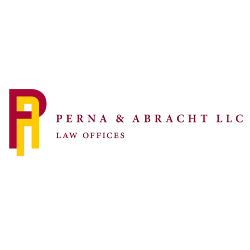Types of Damages Injured Victims Can Recover
Whether you were hurt while running errands or taking a road trip in a rental car, it is important to keep in mind that hiring an attorney can help you maximize the amount of damages you may be entitled to recover. Each case is unique, and you may only be able to make a recovery for certain types of damages. Your attorney can investigate the circumstances surrounding the crash, the impact it has had on your life, and determine the total value of your past and future losses.
Past and Future Medical Expenses
Depending on the extent of your injuries and whether you will need long-term treatment and care, your medical bills may run into the millions of dollars. It can be easy to underestimate the cost of hospital stays, surgeries, rehabilitation, physical therapy, medications, and other expenses. It is critical to make sure your injuries, diagnoses, and medical treatment are properly documented. Your personal injury attorney can put it all together to demonstrate the physical, emotional and financial costs of your injuries.
Past and Future Lost Wages
Injuries sustained in a car accident can leave you unable to work for an extended period of time. If you have suffered a catastrophic injury or are permanently disabled, you may not be able to return to work at all. This can not only put you and your family in a precarious financial situation, it can also cause you to miss out on professional opportunities that may have arisen had you not been injured. Putting an accurate value on future lost wages and loss of earning capacity can be challenging. Attorneys often enlist the help of experts such as forensic accountants who do a thorough analysis of your education, earning potential, work history, and other factors to determine your future losses.
Pain and Suffering
Some injuries result in severe or chronic pain that significantly reduces an injured victim’s quality of life and ability to do things they once enjoyed. The trauma of being in a car accident can also lead to conditions such as PTSD, depression, anxiety, and other psychological problems that cause serious emotional distress.
Wrongful Death Damages
In Pennsylvania, the spouse, children, and/or parents of a victim whose death was caused by negligence can recover damages for financial support, medical expenses, funeral costs, loss of affection and companionship, and other accident-related losses. In a survival action, heirs of an estate can recover damages that the deceased person could have recovered had they survived, such as lost wages and pain and suffering.
Property Damage
If your vehicle or other property was damaged in an accident caused by someone else, you may also be entitled to compensation for property damage or replacement. This may include compensation for repairs, the fair market value of the vehicle if it was totaled, and any property inside the vehicle that was damaged.
This is by no means an exhaustive list of potential damages you may recover as an injured victim. Experienced accident injury lawyers at Perna & Abracht can evaluate your case and determine which specific types of damages may apply in your case.
This blog was originally posted on https://www.pa4law.com/claiming-damages-when-someone-else-is-responsible-for-an-accident/





































